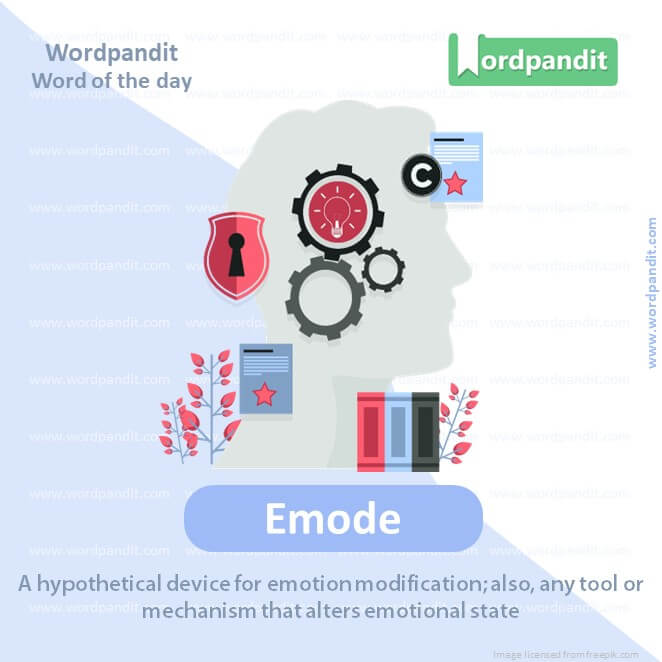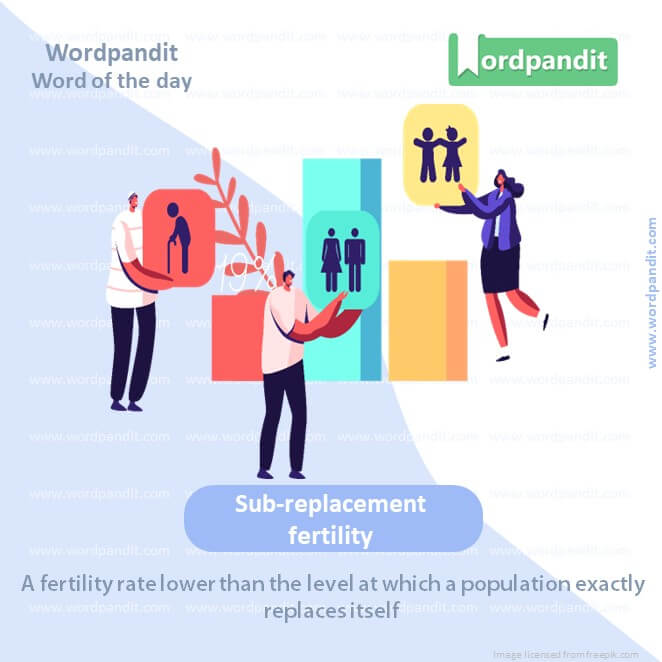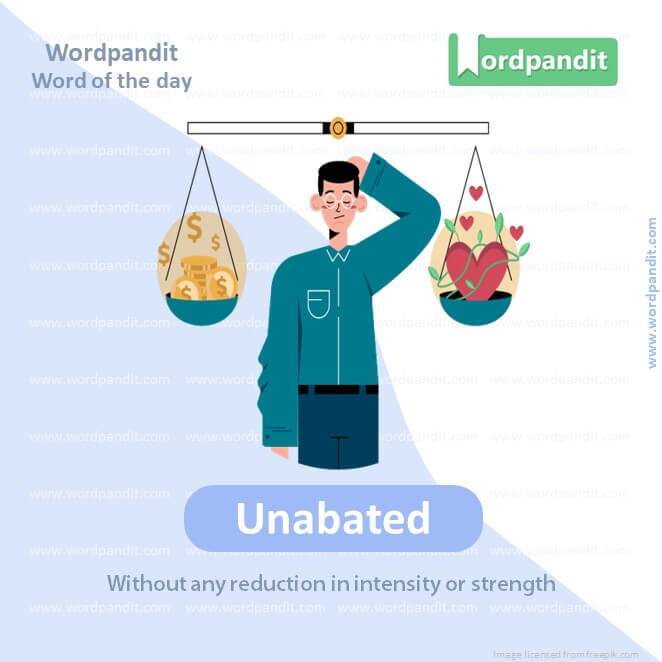Daily Vocabulary Words: List of Daily Used Words
Hi there. Welcome to this special section @ Wordpandit.
Our endeavour here is straightforward: highlighting important daily vocabulary words, you would encounter in The Hindu. This is your repository of commonly used words; essentially, we are posting a list of daily used words. Hence, this has significant practical application as it teaches you words that are commonly used in a leading publication such as The Hindu.
Visit the website daily to learn words from The Hindu.

WORD-1: Demographers
CONTEXT: The rise in population dynamics has intrigued demographers across the globe.
SOURCE: The Hindu
EXPLANATORY PARAGRAPH: Demographers are like detectives who study how many people there are, where they live, and how families grow. They look at how many babies are born and how long people live. They help us know more about our big world family.
MEANING: Experts in the statistical study of populations (noun).
PRONUNCIATION: Deh-mog-rah-fers
SYNONYMS: Population analysts, Census takers, Statisticians, Population scientists, Population researchers, Population experts, Population scholars
USAGE EXAMPLES:
1. Demographers predict that the city’s population will double in 20 years.
2. Demographers often rely on census data for their research.
3. The conference was attended by renowned demographers from all over the world.
4. By analyzing birth rates, demographers can anticipate future trends.

WORD-2: Emode hypothesis
CONTEXT: The Emode hypothesis has been the subject of debate in recent environmental studies.
SOURCE: The Hindu
EXPLANATORY PARAGRAPH: Think of the “Emode Hypothesis” as a big guess or idea about a place called Emode. It’s like when we guess why it rained, but for something special about Emode.
MEANING: The theory that reliance on technology for emotional satisfaction leads to decreased reproduction (noun).
PRONUNCIATION: Ee-mode High-poth-eh-sis
SYNONYMS: Emode theory, Emode proposition, Emode assumption, Emode postulation, Emode notion, Emode speculation, Emode conjecture
USAGE EXAMPLES:
1. The Emode hypothesis suggests there might be unique plants in that region.
2. Researchers are trying to prove the Emode hypothesis through field studies.
3. Not everyone agrees with the Emode hypothesis.
4. The new evidence supports the Emode hypothesis.

WORD-3: Emode
CONTEXT: The town of Emode has witnessed significant environmental changes in the past decade.
SOURCE: The Hindu
EXPLANATORY PARAGRAPH: Emode is like a name for a place or thing. Just like we have names, some places or things have their special names too!
MEANING: A hypothetical device for emotion modification; also, any tool or mechanism that alters emotional state (noun).
PRONUNCIATION: Ee-mode
SYNONYMS: (It’s hard to find synonyms for proper nouns. Assuming “Emode” is a place or unique term, there might not be direct synonyms.)
USAGE EXAMPLES:
1. I visited Emode last summer and it was beautiful.
2. The plants in Emode are unique to that region.
3. They found ancient artifacts in Emode.
4. The story is set in the magical land of Emode.

WORD-4: Sub-replacement fertility
CONTEXT: Many developed nations are grappling with the challenges of sub-replacement fertility rates.
SOURCE: The Hindu
EXPLANATORY PARAGRAPH: “Sub-replacement fertility” is a big word. It’s like when a toy factory makes fewer toys than it used to. It means there are fewer babies being born than needed to replace their moms and dads.
MEANING: A fertility rate lower than the level at which a population exactly replaces itself (noun).
PRONUNCIATION: Sub-ree-place-ment Furr-till-ih-tee
SYNONYMS: Low birth rate, Below-replacement fertility, Reduced fertility rate, Low reproduction rate, Declining birth rate, Insufficient birth rate, Low population growth rate
USAGE EXAMPLES:
1. Many European countries are facing sub-replacement fertility.
2. Sub-replacement fertility could lead to a decrease in population over time.
3. Governments are introducing policies to address sub-replacement fertility.
4. Economic challenges can result from prolonged periods of sub-replacement fertility.

WORD-5: Unabated
CONTEXT: Despite the warnings, industrial pollution continued unabated in several regions.
SOURCE: The Hindu
EXPLANATORY PARAGRAPH: “Unabated” is like when you keep playing and don’t want to stop, even when mom says it’s bedtime! It means something keeps going strong without slowing down.
MEANING: Without any reduction in intensity or strength (adjective).
PRONUNCIATION: Un-uh-bay-ted
SYNONYMS: Unceasing, Relentless, Continuous, Nonstop, Uninterrupted, Undiminished, Unending
USAGE EXAMPLES:
1. The storm raged unabated for three days.
2. Her enthusiasm for learning remains unabated.
3. The noise from the construction site continued unabated.
4. Despite efforts to calm the situation, the protests went on unabated.
WORD-6: Hues
CONTEXT: The festival was a visual treat with vibrant hues adorning the streets.
SOURCE: The Hindu
EXPLANATORY PARAGRAPH: “Hues” are like the different colors in your crayon box. Like red, blue, or green! It’s a way to talk about different shades or colors of something.
MEANING: Colors or shades (noun).
PRONUNCIATION: Hyooz
SYNONYMS: Tints, Shades, Tones, Colors, Pigments, Dyes, Colorings
USAGE EXAMPLES:
1. The sunset displayed a beautiful array of hues.
2. Her dress had various hues of blue.
3. Autumn leaves show different hues of red, orange, and yellow.
4. Artists use different hues to create a mood in their paintings.
WORD-7: Quadrupled
CONTEXT: In the last two decades, the number of internet users has quadrupled, revolutionizing the digital world.
SOURCE: The Hindu
EXPLANATORY PARAGRAPH: “Quadrupled” is when something becomes four times bigger. Like if you had 1 toy and then got 3 more, you’d have 4 toys in total!
MEANING: Increased four times in number or size (verb).
PRONUNCIATION: Kwah-droo-pulled
SYNONYMS: Multiplied by four, Augmented, Expanded, Amplified, Increased manifold, Boosted, Enhanced
USAGE EXAMPLES:
1. The company’s profits quadrupled in just two years.
2. The town’s population quadrupled after the new factory opened.
3. His investment quadrupled in value over a decade.
4. The demand for the product quadrupled during the holiday season.
WORD-8: Corollary
CONTEXT: The development of one theory often brings with it a corollary that sheds light on related phenomena.
SOURCE: The Hindu
EXPLANATORY PARAGRAPH: “Corollary” is like a bonus fact or idea that comes after another idea. Like if I say “It’s raining, so the ground will be wet”, the wet ground is the bonus idea!
MEANING: A result or consequence that naturally follows from another idea or fact (noun).
PRONUNCIATION: Core-oh-larry
SYNONYMS: Consequence, Result, Outcome, Byproduct, Sequel, Aftermath, Spin-off
USAGE EXAMPLES:
1. A corollary of increased screen time is poorer eyesight.
2. The corollary of her hard work was a promotion.
3. If you save money, a corollary might be that you can buy something special later.
4. The new law was introduced, with the corollary that taxes would be reduced.
WORD-9: Corroborating
CONTEXT: Several pieces of evidence have been presented, corroborating the claims made by the whistleblower.
SOURCE: The Hindu
EXPLANATORY PARAGRAPH: “Corroborating” is like when your friend says something, and then someone else says the same thing, proving your friend was right. It’s a fancy way to say “showing something is true with more information or evidence.”
MEANING: Confirming or supporting a statement, theory, or finding with additional evidence (verb).
PRONUNCIATION: Core-rob-or-ate-ing
SYNONYMS: Confirming, Verifying, Substantiating, Validating, Vouching for, Backing up, Attesting
USAGE EXAMPLES:
1. The fingerprints found at the scene were corroborating evidence of his presence.
2. Several witnesses are corroborating her version of the story.
3. The old letters corroborated the historian’s claims about the king’s life.
4. The data from the experiment is corroborating our initial hypothesis.
WORD-10: Expediency
CONTEXT: Many argue that the decision was made more out of expediency than genuine concern.
SOURCE: The Hindu
EXPLANATORY PARAGRAPH: “Expediency” is like doing something because it’s quick and easy, even if it might not be the best way. Imagine taking a shortcut while running a race, even if it’s not the proper way to run it.
MEANING: Doing something because it’s convenient and practical rather than because it’s right or appropriate (noun).
PRONUNCIATION: Ex-pea-dee-en-see
SYNONYMS: Convenience, Practicality, Advantage, Benefit, Prudence, Utility, Suitability
USAGE EXAMPLES:
1. The decision was made out of political expediency rather than genuine concern.
2. The company chose the location for its expediency in reaching customers.
3. Critics argue that the new rules are more about expediency than safety.
4. The expediency of the online process made it popular among users.
Vocabulary SSC
Navigating the path to success in competitive examinations like the Staff Selection Commission (SSC) triggers a keen focus on ‘vocabulary SSC’. This collection of words, often prominent in SSC examinations, holds paramount importance, and forms a significant part of a candidate’s linguistic preparation. However, mastering ‘vocabulary SSC’ is a process that requires deliberate strategy and dedication.
To begin the journey with ‘vocabulary SSC’, a structured learning regime is key. Break the learning process into manageable chunks. Concentrate on a set number of words each day. This steady, consistent approach reduces the risk of burnout and enhances long-term retention of vocabulary.
The strategic use of memory aids can significantly boost the learning of ‘vocabulary SSC’. Utilize flashcards, memory apps, or even create personal mnemonics to help remember each word and its meaning more effectively. Associating a word to a personal event or object creates a lasting mental connection, making recall easier.
To truly master ‘vocabulary SSC’, it’s crucial to engage with the words in different contexts. Incorporating the words into daily reading and writing practices provides exposure to their usage in varied situations. This practical application reinforces the understanding of ‘vocabulary SSC’, enhancing the ability to employ these words accurately in the exam setting.
Regular revision is a must when preparing ‘vocabulary SSC’. Spaced repetition, interspersing the study with regular breaks, and regularly revisiting the words learned, ensures the words stay firm in your memory, ready to use when needed.
In essence, preparing ‘vocabulary SSC’ is an exercise in action-oriented constant learning. Strategic use of learning tools, practical application, and regular revision are key aspects of getting a grip on ‘vocabulary SSC’. As you stride through this process, you inch closer to acing your SSC examinations with an enriched vocabulary and boosted confidence.













